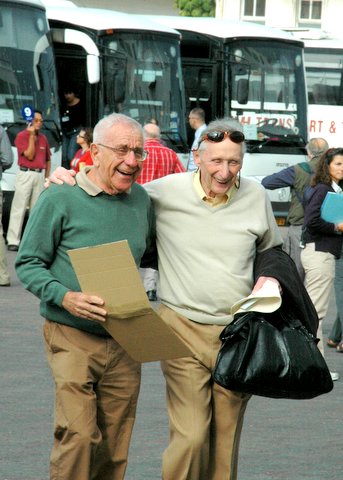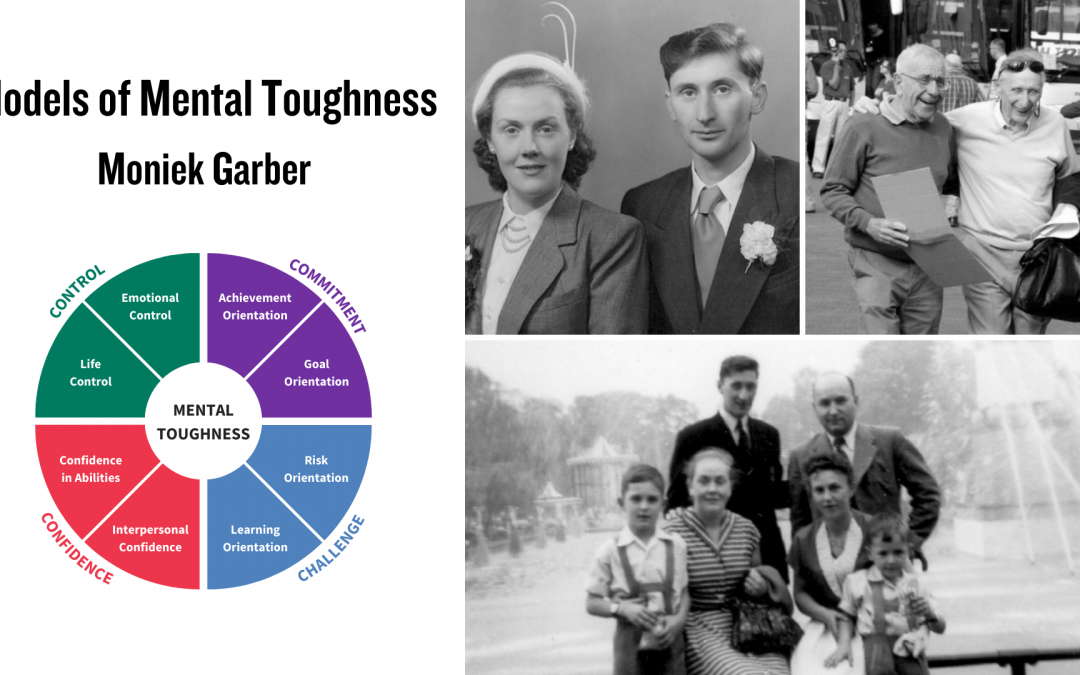Who is, or perhaps, what is God? A perspective
I was about 6 years old when something happened which took me by surprise and has been with me for the rest of my life.
I didn’t know it then but do now. It’s a reasonable illustration of what mental toughness means in practice.
At the end of WWII my parents, like 200,000 Poles, found themselves in the UK, stranded because they couldn’t return to Poland without the risk of imprisonment or even execution.
Initially, they formed small communities, hoping that they could return, one day, to Poland. That day never came.
In the meantime, they faced the challenges that have faced refugees since time began. We lived in very basic accommodation (no bathroom, indoor toilet or kitchen). Everything happened in just two small rooms.
Still, they were amazingly optimistic.
My mother had been taken by the Nazis at the age of 14 to a forced labour camp in Austria and, towards the end of the war, had escaped to Switzerland. From there she made her way to Britain.
My father had been taken by the Russians and sent to a Gulag – a Soviet concentration camp in Siberia – to log trees. The survival rate was extremely low – as low as 25%. When the Germans attacked Russia, the camps were opened and the Poles were allowed to join Polish Units in the British Army – in the Middle East. A journey of almost 5,000 miles was made largely on foot and on trains.
So, current circumstances living in Govan, a deprived area of Glasgow, were at least better than their experience of the past 7 years.
I was born into and grew up in one of those communities, listening to stories of survival and of what they had experienced. I got used to hearing them – and they were many and varied.
One of my father’s friends was a man called Moniek. He was a Polish Jew and he and his family had suffered badly. It appeared that every member of his family had been killed in Auschwitz.
Moniek married a Scottish woman and, after a journey which took him to Oxford University and then working as a labourer in Scotland, began to prosper as a lecturer at Glasgow University. They were never able to have children.
They became close friends with my family and seriously doted on me. It was much later that I began to realise why that might be.
My parents would often talk at home about what had happened to Moniek and his family. As I grew older, they realised that I was listening and beginning to understand much of what they were saying.
So, I had it drummed into me that I should never ever ask Moniek about what had happened to him and his family during the war.
One day we were invited to visit their flat in the West End of Glasgow. The purpose was to see the new fridge they had bought. It was the wonder of its age!!
People did that in those days if you bought a TV or a radiogram or white goods you invited everyone around to see them. These were the height of luxury.
Part of the promise to me was that there would be real ice cream available. As much as I wanted.
The day came and we trooped around including me getting the Basil Fawltyish “Don’t mention the war!”
We entered and almost immediately were taken into the kitchen (by now they were wealthier than my parents). Moniek went to the fridge and opened the door to show me a tub of homemade ice cream.
Before anyone could stop me, I blurted out “How can you forgive them?!”.
Everyone froze – especially my parents.
Moniek looked puzzled and said, “What do you mean?”
“The Germans. What they did to your family. How can you forgive them?”
My parents started apologising but he shushed them. Squatting on his haunches he brought himself down to my level and said, all the while the fridge door was open, ”I don’t need to forgive them or to hate them. They are forever in Hell”.
“ You see I believe that God is love. Love is about doing good things and not evil things. If you lead a good life and you do lots of good things, especially for others, people will remember you kindly when you are gone. That, I believe, is where Heaven is. If people remember you for being a good person, you are in Heaven.”
“If, on the other hand, you are a bad person and do evil things then people remember you for the unkind person you were. That is where Hell is. You are forever remembered as a bad person”
So, you see there is no need for me to hate or to forgive. The people who did those things to my family are forever in Hell”
“If people love each other and look after each other they know God.”
I doubt if anyone had spoken to me about God in that way up to that point. My experience of church was listening to litanies and services, often in Latin which I didn’t understand.
I think about that conversation very often, sometimes to reflect on his ability to come to terms with what had happened. Sometimes to remember his and his wife’s kindness and generosity.
Nowadays, I think of his mental toughness. To be able to deal with some of the most unpleasant experiences a human can have and yet emerge with hope and aspiration.
He lived to a ripe old age and in 2007 he found a cousin, still alive, who had also survived the Holocaust.



